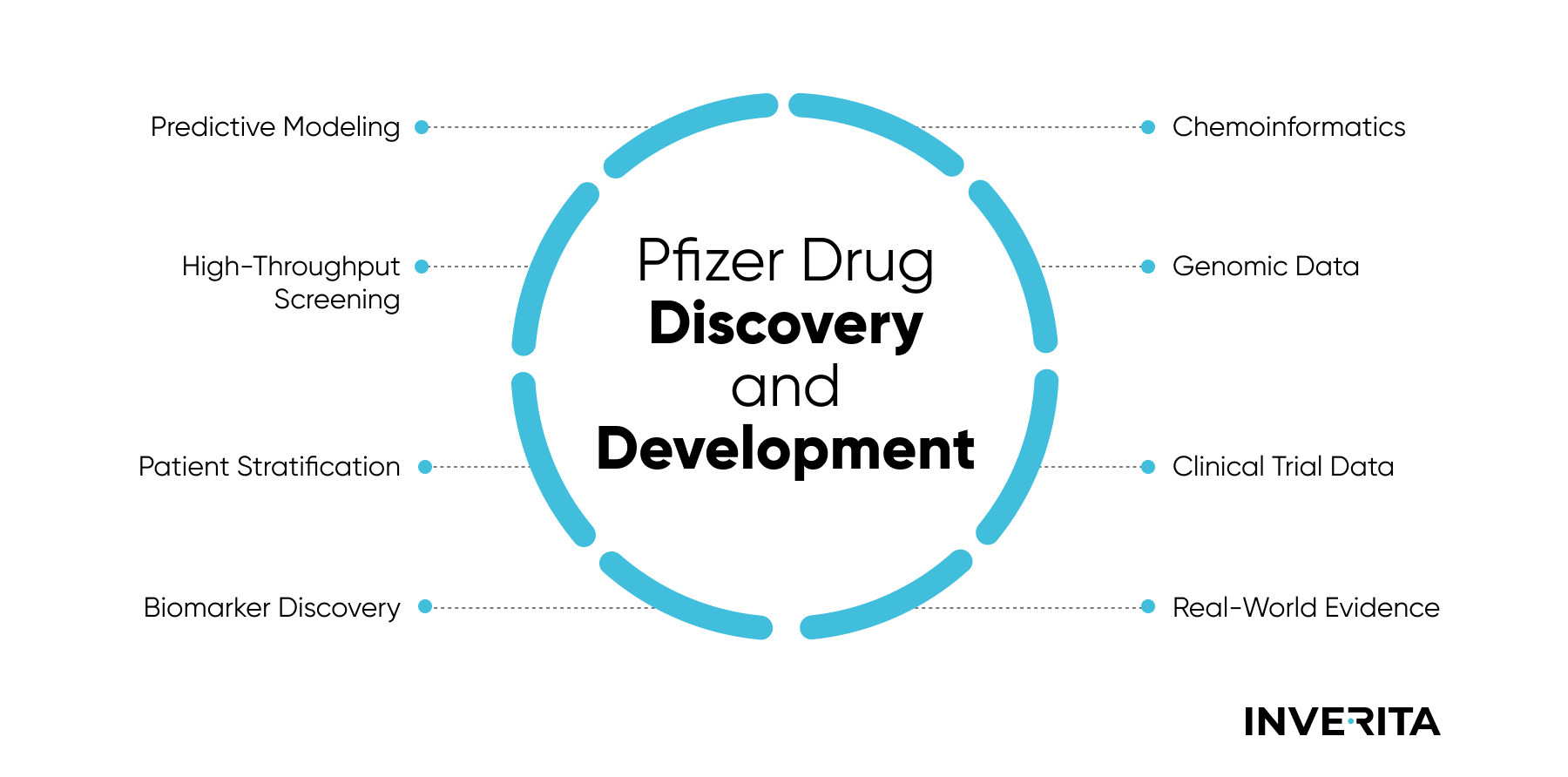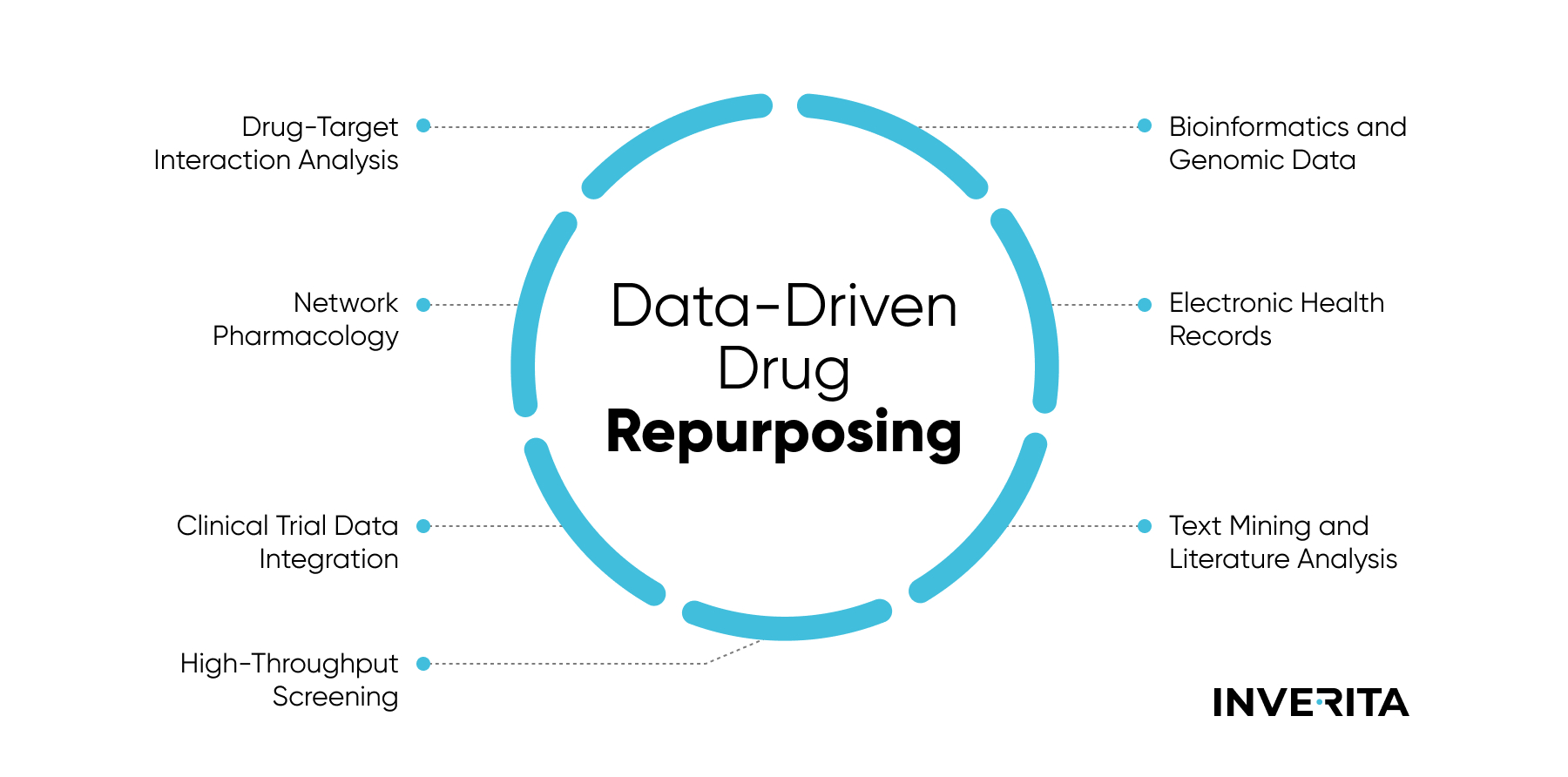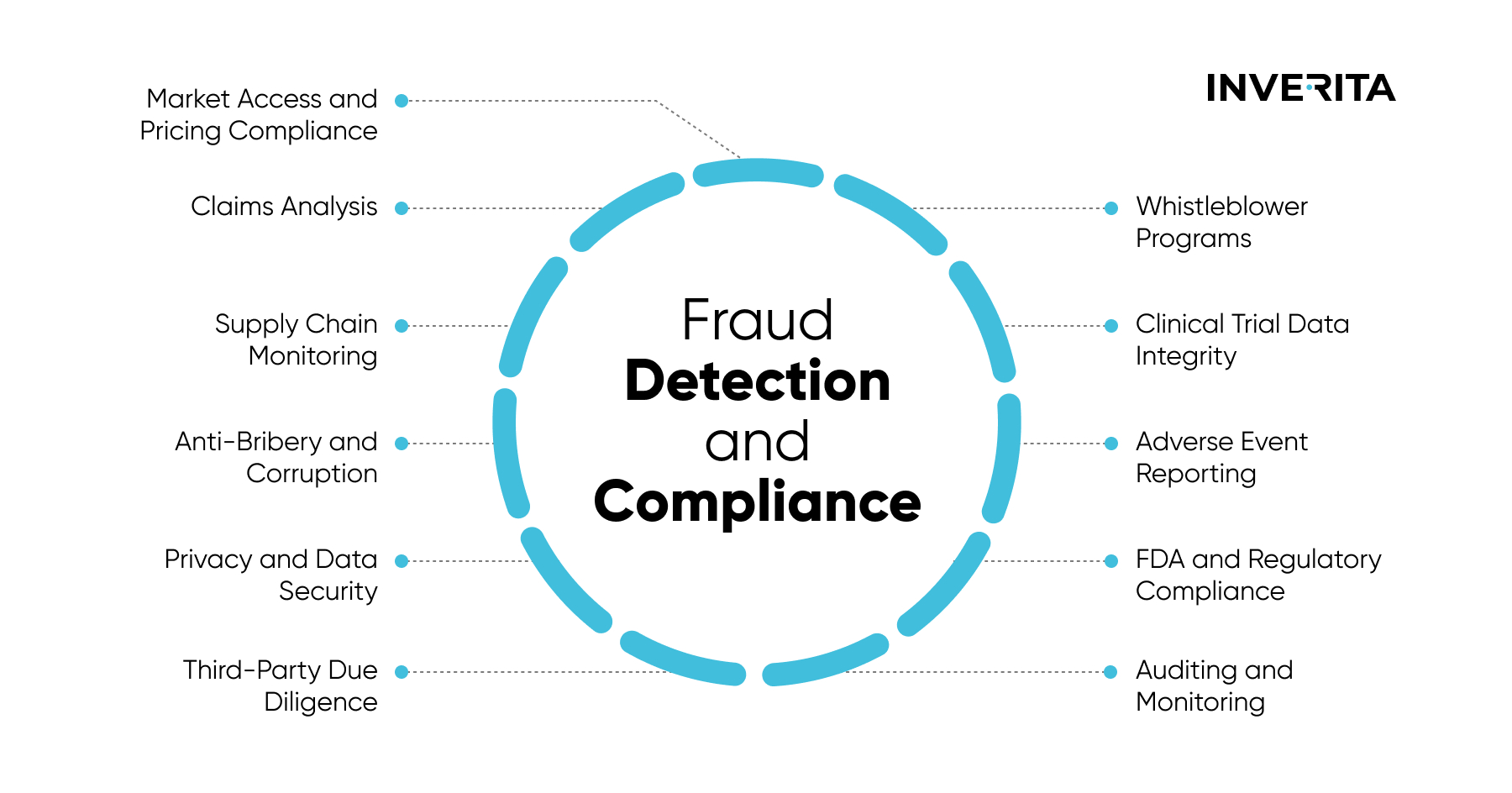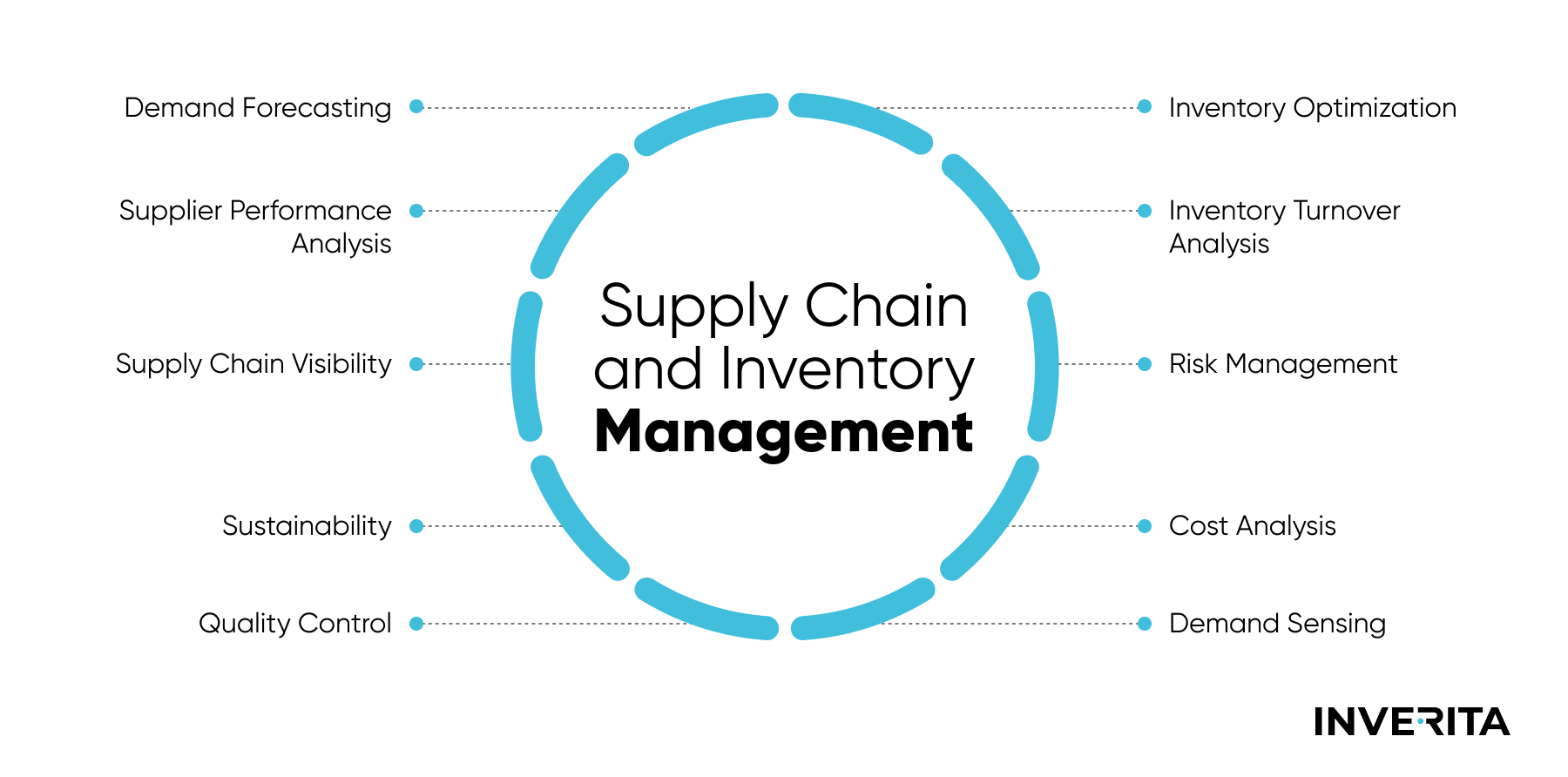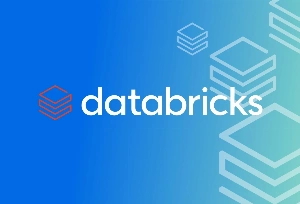The pharmaceutical industry is on the verge of a transformative era powered by advanced analytics and data-driven technologies.
McKinsey's analysis reveals that the broader adoption of these technologies holds the potential to enhance business operating performance significantly. In just five years, it's projected that EBIDTA (Earnings Before Interest, Taxes, Depreciation, and Amortization) could see a remarkable increase of 15% to 30%. Looking ahead over a decade, this improvement is expected to soar, ranging from 45% to 75%.
Notably, many pharma companies, particularly industry giants, have already embarked on ambitious AI initiatives spanning various stages of drug production.
In this article, we delve into pharma analytics use cases from industry leaders to illustrate their transformative potential.
What is Data Analytics in the Pharmaceutical Industry?
Over the last decades, pharmaceutical companies have benefited from the rapid growth of technology and constantly increased their adoption of pharma analytics and other digital technologies to become more efficient and protected against future systemic shocks like coronavirus pandemics. As a result of this digital acceleration, not only great volumes of data are being generated, but also new smarter ways of collecting, processing, and analyzing various types of data were invented, covering structured, semi-structured, and even unstructured data.
Unification of data from various sources along with the implementation of a fast and efficient data pipeline on top, which is an element of analytics, provides many key opportunities for pharma companies that can be capitalized or used to expand the business. A simple example of data analytics in pharma market might be streamlining clinical trials which reduces costs associated with drug development and R&D.
Where and How Data Analytics is Used in Pharma?
Streamlining of clinical trials and accelerating of drug research process are not only examples of data analytics. There are many more areas where data analytics in pharmaceuticals could be applied – it helps to optimize both sales and marketing strategies, impact the length of supply chains, and many more.
Let’s take a closer look into various pharma big data use cases that might help to drive the growth of your business, starting from ones that were already mentioned in this article.
8 Use Cases for Data Analytics in Pharma
#1 Drug Discovery and Development Acceleration
Over the last few years, the cost of introducing a new drug into the market has significantly increased, and the pharma industry is looking for innovative ways of accelerating this entire process to introduce new products to the market in the shortest time possible without compromising the quality of the research phase.
And here we can see the first opportunity for pharma data analytics, which is a powerful tool for optimizing the drug discovery process. Analysis of large datasets of scientific publications, control group data and research papers, combined with the application of predictive algorithms allows pharma firms to make more informed decisions. Using analytics, businesses can optimize the way they operate, create advanced safety protocols, and improve drug trials which may lead to greater financial benefits and drive innovation in the field of drug discovery.
Pfizer, one of the world's largest pharma companies, employs data analytics to accelerate drug discovery and development, a process that traditionally involves significant time and resources. They utilize advanced computational techniques and artificial intelligence to analyze vast datasets from multiple sources.




